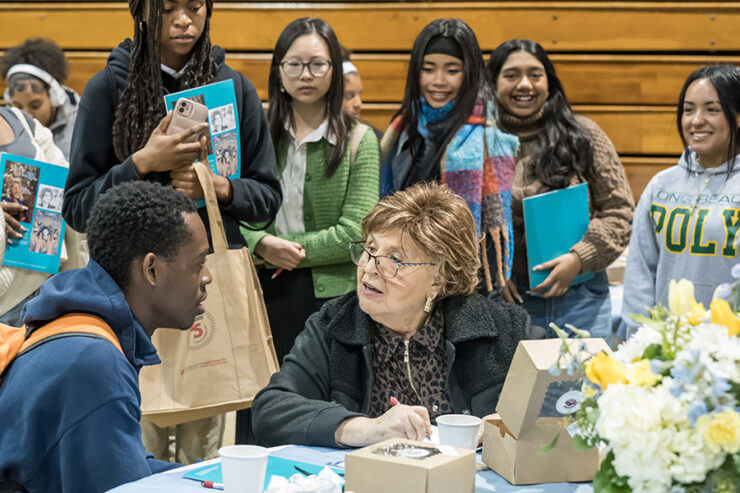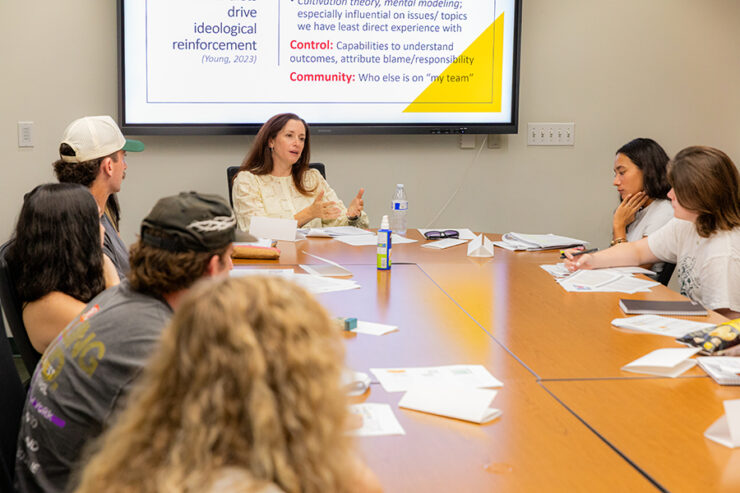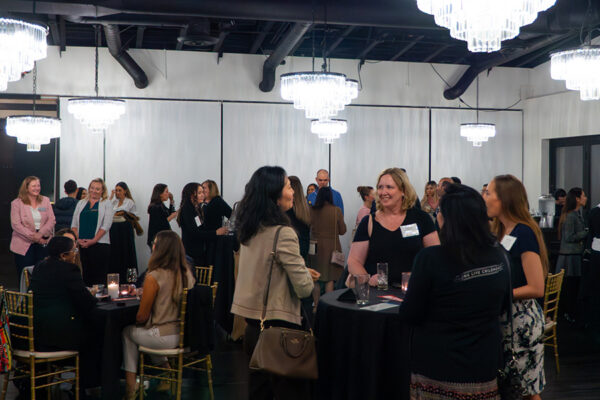As Chapman University plans to officially inaugurate Matt Parlow as its 14th president, it’s only natural that we are reminded of the university’s history and founding. Quite intentionally, Chapman’s predecessor institution, Hesperian College, was founded in 1861 on the day of Abraham Lincoln’s own presidential inauguration to make a point: the institution would distinguish itself as one that welcomed all – any gender, background, or religion. More than 160 years later, these founding principles actively live on.
From the moment students arrive at Chapman, they become part of a university community dedicated to educating and producing global citizens who lead inquiring, ethical, and productive lives. Guided by a spirit of collaboration and care and its four pillars (intellectual, physical, social, and spiritual), Chapman creates opportunities for students to connect, learn, and contribute to programs and initiatives that help shape a brighter future both on its campuses and beyond.
Here are just a few examples.
Sala and Aron Samueli Holocaust Art & Writing Contest
One of the most visible expressions of Chapman’s commitment to advancing global knowledge is the Sala and Aron Samueli Holocaust Art & Writing Contest, now in its 26th year and recently fueled by a $3 million gift from the Samueli Foundation.
Presented by Chapman University’s Rodgers Center for Holocaust Education and The 1939 Society, the annual contest brings together middle and high school students from across states and nations, inviting them to respond to themes drawn from survivor testimony through art, prose, poetry, and film. The awards ceremony itself often becomes a moment of powerful connection: students meet Holocaust survivors and their families, bridging generations and fostering hope. In fact, Chapman leveraged the 25th anniversary of the contest last year to reflect on its efforts to confront antisemitism.

Barry and Phyllis Rodgers Center for Holocaust Education
Beyond the art and writing contest, Chapman amplifies its educational mission through the Rodgers Center for Holocaust Education, which hosts lecture series and other programs that bring scholars, filmmakers, and other voices together. Through such programming, the university offers more than remembrance; it equips students with the tools for reflection and civil discourse.
One such example took place last September, when the Center hosted a special event titled “Inseparable: One Family’s Extraordinary Story of Holocaust Survival.” The event featured award-winning author Faris Cassell; Marion Hess Ein Lewin, a child survivor of the concentration camp Bergen-Belsen; and other scholars and leaders. The gathering was an opportunity to hear first-hand accounts of the Holocaust and contextualize how those lessons can be applied to the present day.
The Or Initiative for Civil Discourse
Further enriching Chapman’s ability to address difficult historical and societal conversations is the Or Initiative, made possible thanks to a $1.85 million gift from the Samueli Foundation. The Or Initiative is a bold vision for civil discourse that aligns with Chapman University’s deep commitment to free speech, viewpoint diversity, and academic excellence. Under the leadership of Dr. Vikki Katz, professor in the School of Communication and Fletcher Jones Endowed Chair in Free Speech, the Or Initiative aims to equip young people at Chapman and beyond with the skills to engage in difficult, nuanced conversations with intellectual rigor, historical context, and empathy. (In Hebrew, the word “Or” means light, signifying the initiative’s aim to enlighten those who participate.)
This week, members of the Or Initiative, including experts from around the country, met on Chapman’s Orange campus to develop strategies to begin the rollout of the program in select cities and discuss key research findings. Joining Dr. Katz in the discussions were individuals specializing in children’s teaching and learning, policy and media, digital content, programs and events, and curriculum research.
Chapman’s leadership in advancing its mission and helping generations of students to connect, learn, and grow remains as important today as it was more than a century and a half ago.




